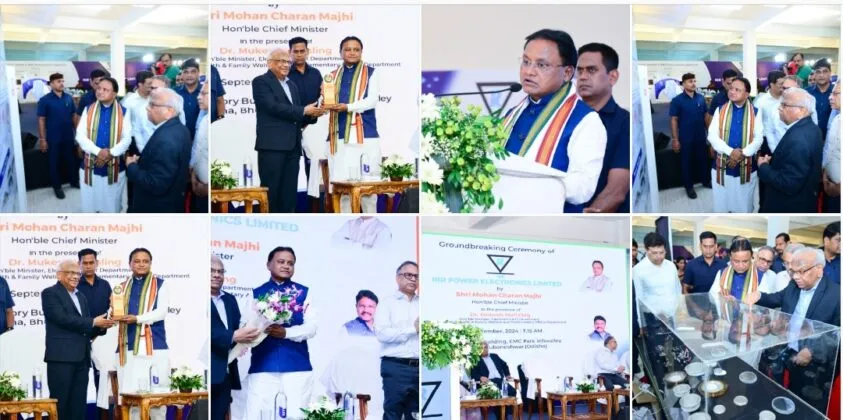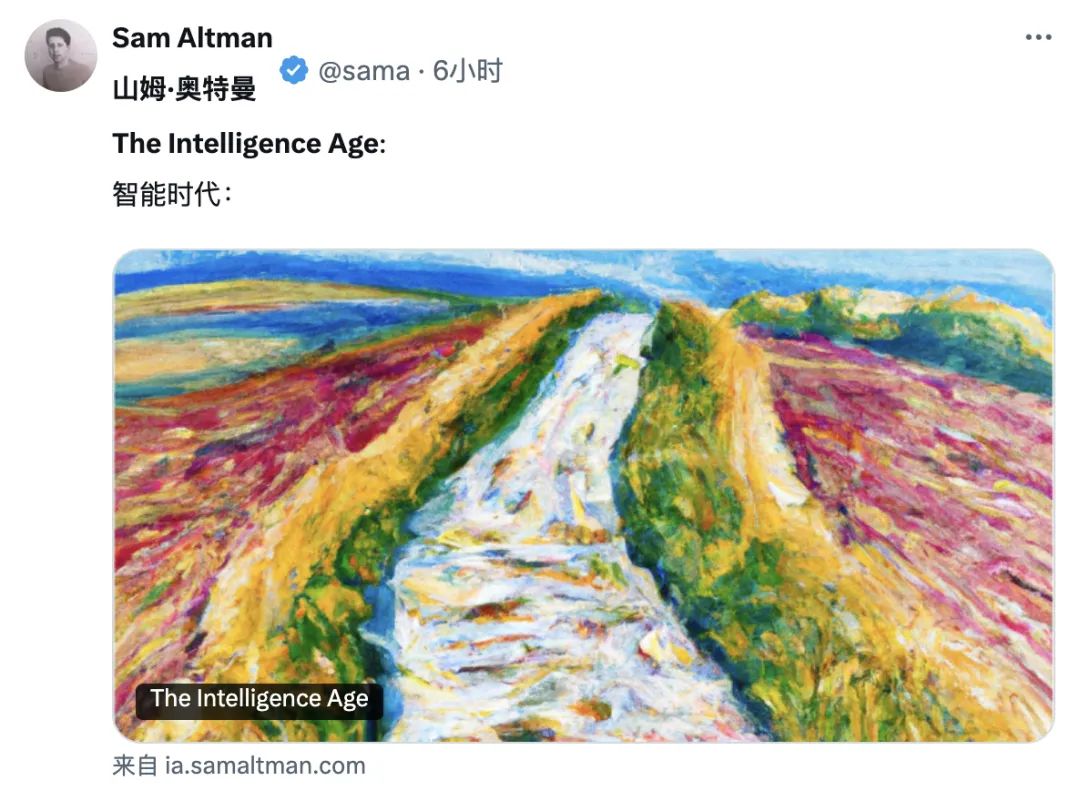World News Daily(2024-09-24) : Biden Administration Proposes Ban on Chinese Vehicles and Software in U.S. Cars
Biden Administration Proposes Ban on Chinese Vehicles and Software in U.S. Cars
Biden's administration plans to ban Chinese software and hardware in U.S. vehicles, citing national security risks. The move aims to prevent data collection and potential remote control by foreign adversaries, particularly China and Russia.
The proposed regulation would bar Chinese cars from the U.S. market and force existing automakers to remove Chinese components. This includes self-driving car testing by Chinese firms.
Commerce Secretary Gina Raimondo warns of extreme scenarios where foreign adversaries could control U.S. vehicles, causing crashes and roadblocks.
The U.S. has already imposed steep tariffs on Chinese imports, including electric vehicles. Raimondo emphasizes acting before Chinese and Russian components become widespread in the U.S. automotive sector.
Nearly all newer cars are "connected," with onboard network hardware for internet access. The proposal would ban existing Chinese light-duty vehicles but allow for specific exemptions.
White House National Security Adviser Jake Sullivan highlights evidence of China's malware in critical U.S. infrastructure. The Chinese Embassy in Washington criticizes the move, urging a level playing field for all companies.
The proposal calls for software prohibitions by the 2027 model year and hardware bans by 2030. The public has 30 days to comment, with finalization expected by January 20.
The Alliance for Automotive Innovation, representing major automakers, warns that changing hardware and software would take time. They note that components are developed globally, including in China, but cannot detail the prevalence of Chinese components in U.S. models.
ScoresPolitics
US and India strengthen semiconductor cooperation, plan to build advanced chip manufacturing plant in India.

The United States and India are strengthening their semiconductor cooperation, with President Biden and Prime Minister Modi announcing the establishment of an advanced chip manufacturing facility in West Bengal, India. The facility will produce infrared, gallium nitride (GaN), and silicon carbide (SiC) semiconductors, focusing on sensing, communication, and national security applications. This initiative aims to foster technological collaboration between the two countries and create job opportunities.
The Indian government is supporting the industry through the "Semiconductor Mission of India," which includes attracting investment, research and development, and infrastructure development. Odisha also plans to set up a second silicon carbide factory with an expected capacity of 72,000 wafers per year, targeting the electric vehicle and renewable energy sectors.
India is actively pushing for the development of its chip manufacturing industry, and German company Infineon has expressed interest in collaboration. Discussions among the three parties have revolved around the development of power semiconductors, with Infineon considering transferring some of its operations to India.
Notes:
- Gallium Nitride (GaN): A semiconductor material used for efficient power conversion.
- Silicon Carbide (SiC): Another semiconductor material suitable for high-temperature and high-frequency applications.
- MOSFET: Metal-Oxide-Semiconductor Field-Effect Transistor, used for electronic switching and amplification.
Society
The People's Bank of China announces five supportive policies for the real estate sector.

People's Bank of China Governor Pan Gongsheng announced five supportive policies for the real estate sector:
- Existing mortgage rates will be reduced by approximately 0.5 percentage points, benefiting an estimated 50 million households and reducing annual interest expenses by 150 billion yuan.
- A unified minimum down payment ratio for mortgages will be implemented, with the down payment ratio for second homes reduced from 25% to 15%.
- The central bank's funding support ratio for affordable housing will be increased to 100%.
- The validity of two real estate financial policy documents will be extended to 2026.
- Support will be provided for the acquisition of existing land from real estate companies to alleviate financial pressure.
These measures aim to lower the threshold for home purchases, boost market confidence, and promote economic recovery.
ScoresCyprus's Leadership in Solar Heating: A Sustainable Success Story
Cyprus leads the EU in solar heating, with 93.5% of households using solar thermal systems for hot water. These systems, introduced in the late 1960s, collect solar energy to replace traditional heating methods, like electricity and fossil fuels. They are cost-effective and have created jobs in manufacturing and installation.
Charalampos Theopemptou, Cyprus's first environment commissioner, pushed for mandatory solar systems in new buildings. The industry grew, with over 962,564 cubic meters of solar collectors installed. Hotels, benefiting from Cyprus's 300 days of sunshine, also adopted solar power.
Demetra Asprou, a retired engineer, highlights the efficiency and environmental benefits. A 200-liter tank can be filled with warm water in just a few hours, lasting 48 hours. Installation costs are higher but offset by EU grants, making it a financially sound choice.
Solar thermal systems: Devices that capture solar energy to heat water or air, reducing reliance on traditional energy sources.
ScoresEconomy
The central bank has issued multiple financial policies to support high-quality economic development.
People's Bank of China Governor Pan Gongsheng announced a series of financial policies at a press conference on September 24 aimed at supporting high-quality economic development. The main measures include:
-
Reduction in Reserve Requirement Ratio (RRR) and Interest Rates: The RRR will be cut by 0.5 percentage points, releasing approximately 1 trillion yuan in long-term liquidity. The central bank's policy interest rate will be reduced by 0.2 percentage points, guiding market interest rates downward.
-
Lowering Existing Mortgage Rates: Guiding commercial banks to reduce existing mortgage rates to levels near new mortgage rates, with an expected average reduction of 0.5 percentage points, benefiting 50 million households and reducing annual interest expenses by about 150 billion yuan.
-
Creation of New Policy Tools: Supporting the development of the stock market, including facilitating swaps between securities, fund, and insurance companies, and providing loans for stock buybacks and增持. The initial swap facility operation will be 500 billion yuan, with the first tranche of loans at 300 billion yuan.
-
Optimizing Treasury Bond Issuance: The central bank will buy and sell treasury bonds in the secondary market to optimize the issuance pace and maturity structure.
-
Improving Mortgage Loan Mechanisms: Banks and customers will negotiate and dynamically adjust mortgage rates based on market principles.
Pan Gongsheng emphasized that the central bank respects the role of the market but needs to assess market risks from a macro-prudential management perspective to maintain a good order in the bond market.
Personal Insight: These policies demonstrate the central bank's firm support for economic recovery by lowering financing costs and optimizing the financial environment, boosting market confidence. The newly created policy tools, particularly those supporting the stock market, are expected to enhance capital market vitality and promote economic structural optimization. However, the implementation of these policies must be cautious to ensure risks are manageable and to avoid excessive stimulus leading to new problems.
ScoresTechnology
Sam Altman on AI's Future: Embracing Superintelligence

Sam Altman, CEO of OpenAI, envisions a future where AI ushers in a new era of unprecedented capabilities. He believes AI will be the key to solving complex problems and enhancing human potential. The path to this "superintelligence" hinges on deep learning, which has proven effective and scalable.
Altman emphasizes the importance of reducing computational costs and building robust infrastructure to democratize AI access. Without these, AI could become a tool exclusive to the wealthy, potentially sparking conflicts.
He foresees AI as a personal assistant, aiding in healthcare, education, and creativity. This shift will bring about significant societal changes, including labor market transformations. While some jobs may disappear, new opportunities will emerge, driven by human creativity and AI's augmentation.
Altman's optimism is tempered by caution. He acknowledges the risks but believes the potential benefits—such as addressing climate change and advancing scientific discovery—outweigh them. The challenge lies in managing these risks while harnessing AI's immense potential.
In essence, Altman's vision is one of profound transformation. He urges us to embrace this future with both ambition and prudence, ensuring that AI's benefits are widely shared.
ScoresOpenAI Launches Academy to Democratize AI Access

OpenAI launches the OpenAI Academy. Aim: democratize AI access. Focus: developers and organizations tackling tough problems. Benefits: training, tech support, $100k in API credits. Goal: spread AI's impact globally, starting with lower-income regions. OpenAI also translates benchmarks into 14 languages, supports competitions, and funds projects. This move aims to make AI innovation accessible, breaking barriers of language and wealth.
ScoresVideo Game
Dark Fantasy FPS 'Witchfire' Now Available on Steam



"Witchfire," a dark fantasy first-person shooter, has ended its Epic Games Store exclusivity and is now available on Steam. It is priced at 125 RMB for its initial launch in China. Players take on the role of an immortal witch hunter named Preyer, using firearms and spells to hunt down witches.
The game initially focuses more on gameplay and atmosphere, with the story and lore set to expand in future updates. The early access phase is expected to last 9 to 12 months, with each update introducing new content and improvements.
The storytelling style of the game evokes comparisons to Tolkien and Hemingway.
ScoresEntertainment
Li Jiaqi's Crossover into Variety Shows: Diversified Exploration and Future Layout of E-commerce Hosts
Li Jiaqi, the e-commerce giant, crossed over to participate in "Swordsmen 4," where he was eliminated in the fifth round but won acclaim. He stood out in the show through hard work and wisdom, transforming from "immediate elimination" to "worthy of promotion" in just two months. Li Jiaqi explained his cross-over reason: "I want to experience different worlds and explore more possibilities." This reflects the trend of top anchors seeking change.
During the same period, anchors like Dong Yuhui and Crazy Yang Ge were embroiled in controversies, while Li Jiaqi improved his image through variety shows. He balanced live streaming and the program, showcasing his multifaceted talents and winning audience approval. His assistant Wang Wang also actively participated in variety shows, demonstrating the team's efforts.
Mei Wan Company has a long-term layout, with Li Jiaqi's "alter egos" growing on different platforms. The Naiwa family, Wang Wang, and others expanded their influence, with AI digital human technology applied in the "All Girls" live stream. Qi Zhenbo, founder of Mei Wan, stated that in the future, "Li Jiaqi" will not only be a live stream but also a content-driven channel brand, aiming to be a "century-old shop."
In the changing e-commerce industry, Li Jiaqi and Mei Wan's strategies show the courage and confidence of leaders. They not only respond to challenges but also create the future.
ScoresHealth
New Discovery: Special Cell Death Method Reveals T-Cell Anti-Tumor Mechanism, Providing New Targets for Immunotherapy
Professor Zhang Yi, Director of the Biocellular Therapy Center at the First Affiliated Hospital of Zhengzhou University, has dedicated 35 years to research in cellular and immunotherapy. His team has achieved significant results in the field of tumor immunotherapy, filing and obtaining multiple patents, with a transformation value exceeding 80 million RMB.
Recently, Professor Zhang Yi's team discovered that the expression of phospholipid phosphatase PLPP1 in tumor-infiltrating CD8+ T cells is reduced, leading to T cell intolerance to unsaturated fatty acids and triggering ferroptosis. Ferroptosis is a novel form of cell death associated with increased unsaturated phospholipids.
The study revealed that PLPP1 expression is regulated by the PD-1 signaling pathway, and its levels are closely related to the efficacy of PD-1 monoclonal antibody therapy. Enhancing PLPP1 expression can strengthen T cell anti-tumor functions and improve the efficacy of PD-1 monoclonal antibodies.
The team is currently conducting translational research, including observing the impact of PLPP1 on the persistence of CAR-T cells and the cytotoxic effects of T cells overexpressing PLPP1 on different tumor cells. Additionally, they are screening for PLPP1 agonists to enhance the effectiveness of PD-1 monoclonal antibody therapy.
This research provides new targets and strategies for optimizing tumor immunotherapy, highlighting the critical role of cellular metabolism in immunotherapy.
ScoresTsinghua Team Develops New Oral Nanodrug for Treating Ulcerative Colitis
A research team from Tsinghua University has developed an oral nanomedicine that can precisely target the lesions of ulcerative colitis (UC), rapidly suppress inflammation, and repair the intestinal barrier. The drug achieves a dual therapeutic effect by clearing reactive oxygen species (ROS) and targeting integrins, addressing two critical issues with one solution.
Ulcerative colitis is a challenging-to-cure intestinal disease affecting over 10 million people worldwide. Traditional treatments often suffer from significant side effects and suboptimal efficacy. The new drug design addresses two major challenges: local drug delivery and immune modulation, thereby improving treatment efficacy and reducing side effects.
The research team utilized ROS-responsive ε-polylysine and low molecular weight heparin to prepare nanospheres through layer-by-layer self-assembly technology. In vitro and in vivo experiments confirmed the drug's high efficiency and precision.
Additionally, the study inspired the design of a probiotic delivery system, enhancing the stability and activity of probiotics in the gastrointestinal tract through surface engineering, achieving efficient colon colonization.
In the future, combining AI technology is expected to further optimize drug design and delivery systems, offering more effective treatment options for ulcerative colitis patients.
Reactive Oxygen Species (ROS): Active molecules produced during cellular metabolism, which can cause oxidative stress and inflammation when present in excess.
Integrins: Cell surface receptors involved in cell adhesion and signal transduction, highly expressed during inflammation.
ScoresSports
Olympic Shooter Kim Yeji Lands Acting Role as Assassin
Kim Yeji, the South Korean pistol shooter who captivated the internet with her calm demeanor at the Paris Olympics, has landed her first acting role as an assassin. The 32-year-old silver medalist's viral videos drew praise from Elon Musk, who suggested she should star in an action movie. Now, she will feature in "Crush," a spinoff series of the global film project "Asia." Kim will join forces with Indian actress Anushka Sen, creating a "killer duo." Since her Olympic success, Kim has signed with a talent agency and appeared in a Louis Vuitton photoshoot.
ScoresFood
Family's Diabetes Linked to Unhealthy Diet: Doctor's Advice
Diabetes affects many, particularly those over 60. One family, all diagnosed, shared a common diet: heavy on fried rice and noodles, drenched in chili sauce and soy. Each meal was packed with sugar, lacking in vegetables and protein. This resulted in sky-high blood sugar levels and constant hunger, creating a vicious cycle.
Dr. Yang recommends three solutions: adjust the diet, be more active, and manage stress. Reduce carb intake, increase fiber and healthy fats, and incorporate exercise—strength training and cardio. Simple changes can break the cycle, potentially saving lives.
ScoresJapan's Seafood Prices May Rise as China Considers Lifting Import Ban.
Japan’s seafood industry faces a price hike as China considers lifting its import ban. The ban, imposed in 2023 over Fukushima’s treated wastewater, slashed exports and prices. Scallops, abalone, and yellowtail saw significant drops.
The Japanese government responded with subsidies and automation. Scallop exports to the U.S. and Canada surged, but overall exports fell. Prices are now stabilizing.
China’s potential reversal could boost high-end seafood prices. Despite the ban, Japanese food remains popular in China. Japan aims to triple seafood exports by 2030 but faces supply challenges due to declining wild catches and rising costs.
Scores